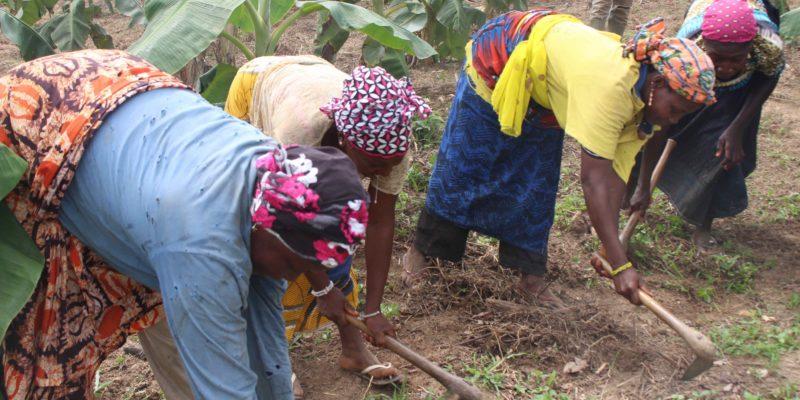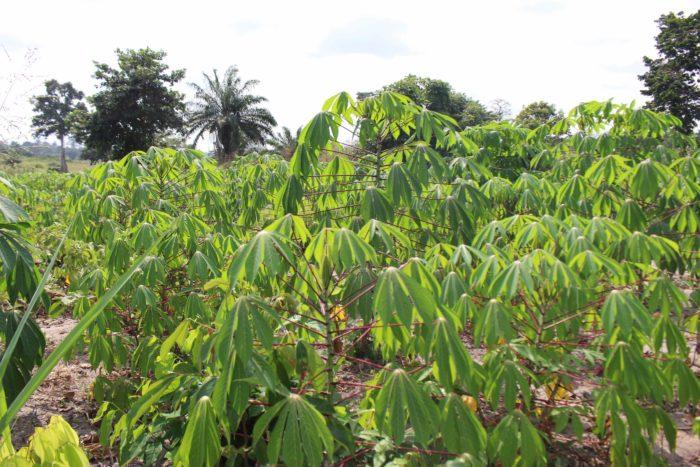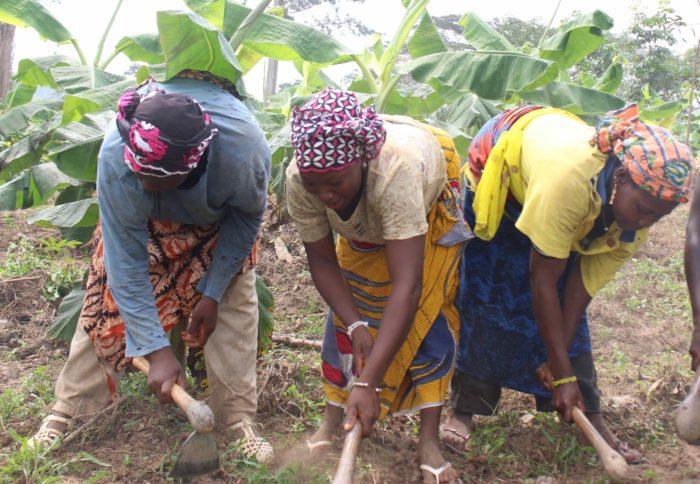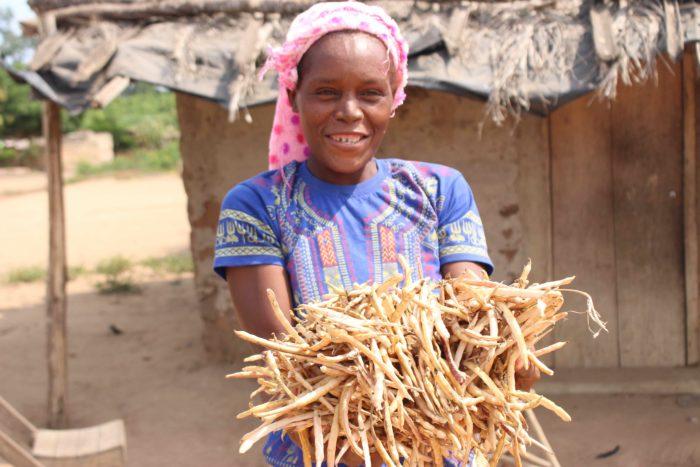Cultivating a Future in Cocoa Communities
by Priscilla Selinam Sogah
CARE, with support from General Mills and other partners, is helping West African communities become food secure through the promotion of food crop farming and nutrition in 30 cocoa-growing communities: 20 in Ghana and 10 in neighboring Cote d’Ivoire.
The work is part of a broader multi-year program aimed at helping smallholder farmers who grow cocoa to increase their livelihoods and to improve the well-being of those in their households and communities.
Hundreds of families are becoming food secure as a result of efforts to empower female farmers to cultivate their own land and earn an income.
An estimated four million people in Ghana and Cote d’Ivoire face food emergencies every year, leaving thousands of children malnourished. The situation is compounded by poverty, lack of modern agricultural techniques, and changes in climatic conditions, all of which affect farmers’ productivity.
Families in cocoa-growing communities are the hardest hit. They focus on cultivating cocoa, the foremost cash crop in the region.
Because of this, families can become food insecure during the lean season, the period after the sales of harvested cocoa beans. Due to a reliance on cocoa production, food crop cultivation receives less attention, therefore making it difficult for families to keep food on the table.
Using 30 food crop promoters trained locally in best agricultural practices, CARE mobilizes communities, particularly women, to use modern techniques for cultivating food crops.
In Ghana, CARE also provides nutrition education for women using 20 community health volunteers trained locally by the Ghana Ministry of Health.
Historically, women have had limited access to land and farm inputs. CARE helps to facilitate their acquisition of land. CARE then provides farm inputs such as seedlings, fertilizers and tools for cultivating crops like eggplant, okra, cassava, tomatoes, peppers, plantains, and beans.
An example is Veronique, a mother of two. Until recently, she focused on traditional duties, such as maintaining a home. Since joining the CARE food crop promotion activities in Zanoufla, Cote d’Ivoire, she has taken on a new, profitable role as a farmer.
Veronique used her first loan of 10,000 CFA francs ($16 USD) from a local Village Savings and Loan Association (VSLA) along with a 13,000 CFA ($20 USD) loan to rent land for six months and purchase the tools to prepare the land for maize and bean cultivation.
Five months later, Veronique described food crop farming as a “lucrative” enterprise.
“I made an income of 50,000 CFA ($80 USD) from harvesting 100 kilograms of maize,” she says. “I have paid the VSLA loan, and with the help of my husband, I will be acquiring my own land in the coming months.”
Veronique has also harvested her beans and is expecting to make a good income. She and her family are well on their way to escaping the hunger of poverty, and she can now supplement her husband’s income and help to take care of some basic family needs.
Veronique is one of many women who, thanks to the support of CARE and General Mills, are realizing their full potential through food crop farming.
This commitment to gender parity in the agricultural sector is making remarkable progress and will have a ripple effect, nourishing communities in West Africa today and in the future





